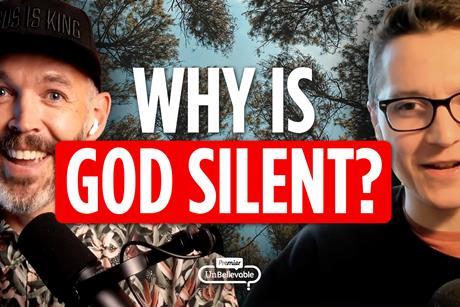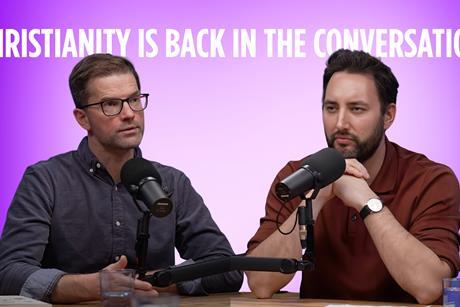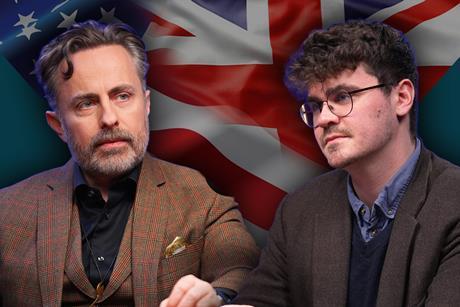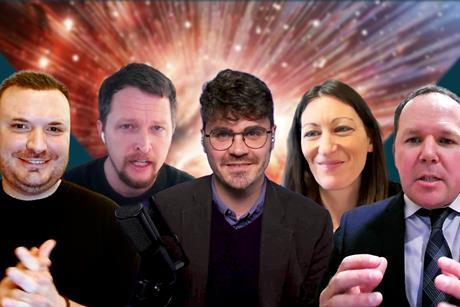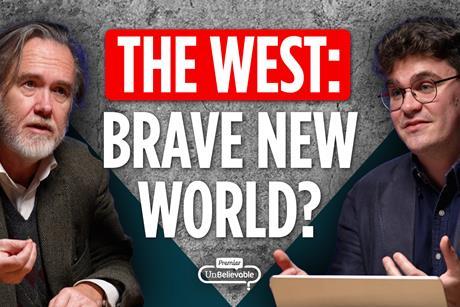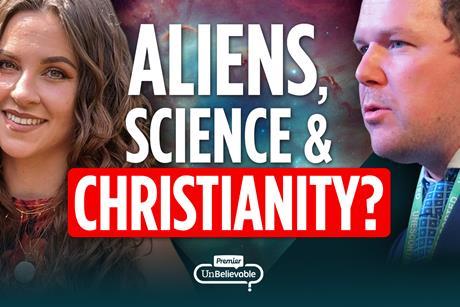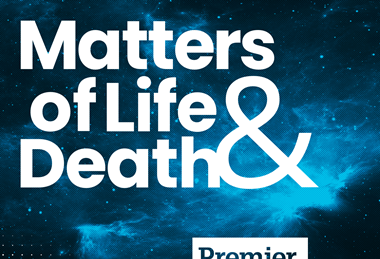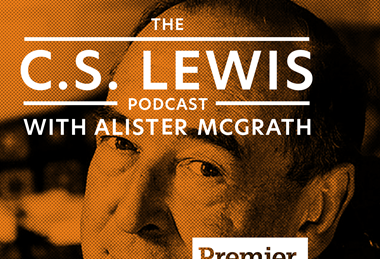Why Did I Debate Douglas Wilson? By Rev. Dr. Michael Bird
Why Doesn’t God Show Himself? (Agnostic Philosopher vs Christian) | Dan Paterson vs Joe Schmid hosted by John Nelson
The social media addiction trial: Can Christians use the courts to protect the vulnerable?
From Jordan Peterson to Bible Sales: What’s Behind the New Interest in Christianity?
- Previous
- Next
Watch the latest debates
Why Doesn’t God Show Himself? (Agnostic Philosopher vs Christian) | Dan Paterson vs Joe Schmid hosted by John Nelson
Christian Nationalism: Biblical or Dangerous? Doug Wilson vs Mike Bird
Why The West Can’t Escape Christianity
Christian Apologetics Has a Problem – And It’s Not Atheism
Is the West Becoming Brave New World? | Rod Dreyer and John Nelson - An Unbelievable Show Special
Decoding the Cosmos: Atheist Philosopher vs Christian Scientist on Fine-Tuning, Time, Incarnation & Alien Life Emily Qureshi-Hurst vs Sam McKee hosted by Andy Kind
Article new
Why Did I Debate Douglas Wilson? By Rev. Dr. Michael Bird
Rev. Dr Michael F. Bird explains why he chose to debate Douglas Wilson, a controversial figure in American Christianity. Bird argues that honest engagement, fair critique, and open dialogue are better tools than censorship or outrage for addressing the influence of Christian nationalism.
Should Christians keep Saturday as the Sabbath?
If the biblical Sabbath is Saturday, why do Christians worship on Sunday? N.T. Wright traces the Sabbath through Scripture to show how Jesus’ resurrection reshaped time, rest, and the meaning of God’s Kingdom
“Despair is forbidden”: Nigel Biggar on civilisational decline, culture wars, and Christian courage
In this wide-ranging interview, Lord Nigel Biggar - Oxford theologian, Anglican priest, and Conservative peer - argues that Christians must stop outsourcing public courage and can’t hide behind niceness when truth and justice are contested.
Why CS Lewis and Leadership Is Exactly the Conversation We Need
He never sought authority, avoided institutions, and disliked administration, yet CS Lewis has led millions into faith. What does his influence tell us about leadership, persuasion, and belief today?
Who We Are
At Premier Unbelievable, we believe dialogue matters. As part of the Premier Christian Radio family in the UK, our mission is to spark thoughtful, respectful conversations around faith, belief and worldview.
Our Story
From our beginnings with the flagship podcast Unbelievable?, we’ve grown into a platform that brings together Christians and sceptics, theologians and curious minds, to explore life’s big questions. We produce high-quality podcasts, video series, live events and training – always aiming to create a space where belief and doubt meet honestly.
Our Mission
To empower Christians with a thinking faith and to invite non-Christians into honest, open conversations about life, meaning and truth. We aim to bring credible Christianity into the public sphere and to change the conversation about faith in our world.
Ask NT Wright Anything
What do you get from Church that you can’t get from another community?
What makes Church different from any other community? In this episode of Ask NT Wright Anything, Tom Wright and Mike Bird explore the church’s unique role in spiritual protection, salvation, and navigating tricky issues like infant baptism and bad teaching.
Can Christians serve unjust governments?
Can Christians work within unjust governments? What actually changes with the New Covenant? And what does the future hold for Anglicanism amid global shifts and internal tensions?
Psychedelics: Shamans, the philosophy of Harry Potter and the neuroscientific turn
Tim is away this week, so we’re dipping into the MOLAD archive for a classic episode from 2024. Culture is increasingly interested in psychedelic drugs.
Read storyThe social media addiction trial: Can Christians use the courts to protect the vulnerable?
This episode explores the high-stakes legal battle against social media giants in Los Angeles, as families and schools sue over platforms’ addictive designs and their impact on teens. With governments and courts stepping in, we ask: Can Christians use the law to protect the vulnerable? Should believers push for harm reduction, bans—or a new prophetic voice in the digital age?
Q&A: Were we unfair on the House of Lords over its assisted dying scrutiny? And the Church of England prepares to welcome its first nurse-Archbishop
In this episode, we revisit our discussion on the House of Lords’ handling of the assisted dying bill, responding to listener feedback and exploring the complexities behind the debate. Plus, we look ahead to Sarah Mullally’s historic appointment as the first nurse-Archbishop of Canterbury, reflecting on how her unique background could shape both the Church of England and its relationship with the NHS.
Do the ends justify the means? The dubious campaign by unelected lawmakers to destroy the assisted dying bill
Last year, the democratically-elected MPs of Britain’s House of Commons passed by a margin of 23 votes a bill to introduce assisted suicide for the first time. Before it can come into force, the bill has to also be approved by the UK’s unelected upper chamber of parliament, the House of Lords. Here it has started to founder, as opposition grows and the parliamentary procedure is gummed up by a thousand separate amendments.
The CS Lewis Podcast
#249 Ruth Jackson: Faith, religion and imposter syndrome
In this episode taken from the Lesser Known Lewis podcast, Ruth, Steven and Jordan share their final reflections on Lewis’s Christian Apologetics essay. They discuss how the essay was helpful for their faith, thick or clear religion, strengthening their Christian practices and imposter syndrome.
#248 Ruth Jackson: Why CS Lewis Might Be Exactly What a Post-Truth World Needs
In this special edition of the CS Lewis Podcast, we’re sharing a conversation first recorded for the Lesser Known Lewis podcast, kindly made available for our listeners.







